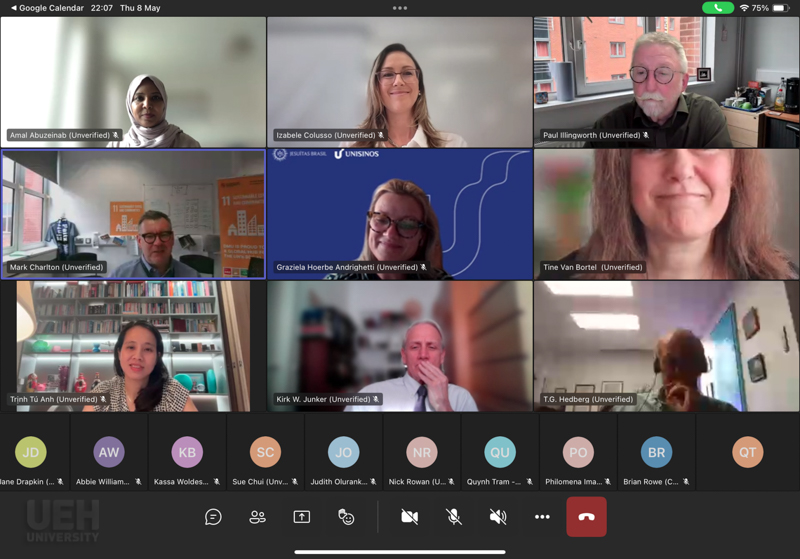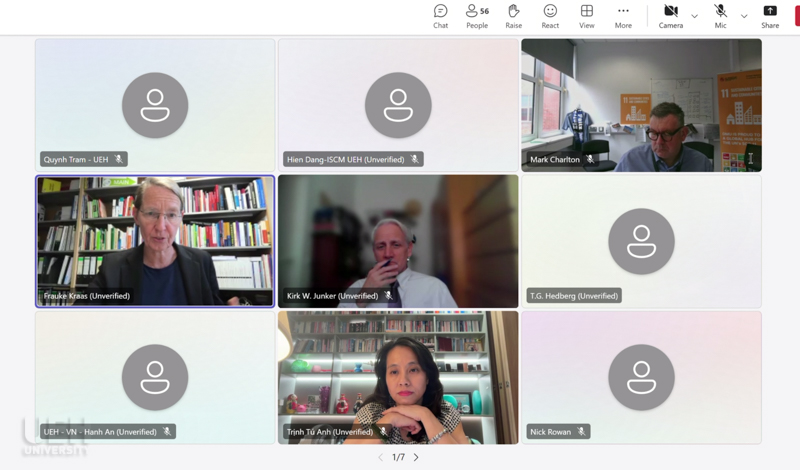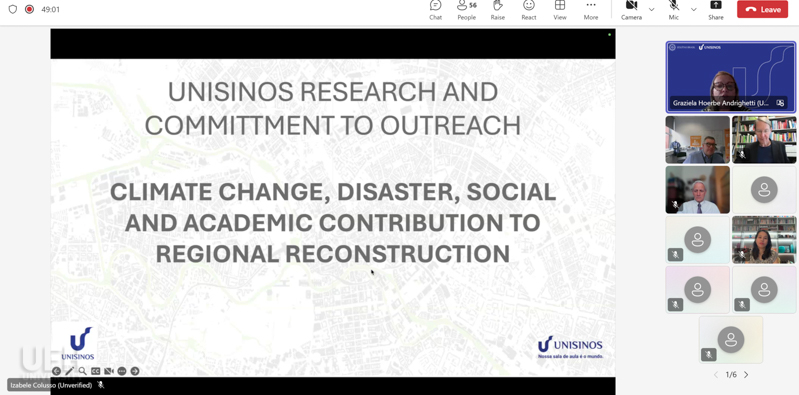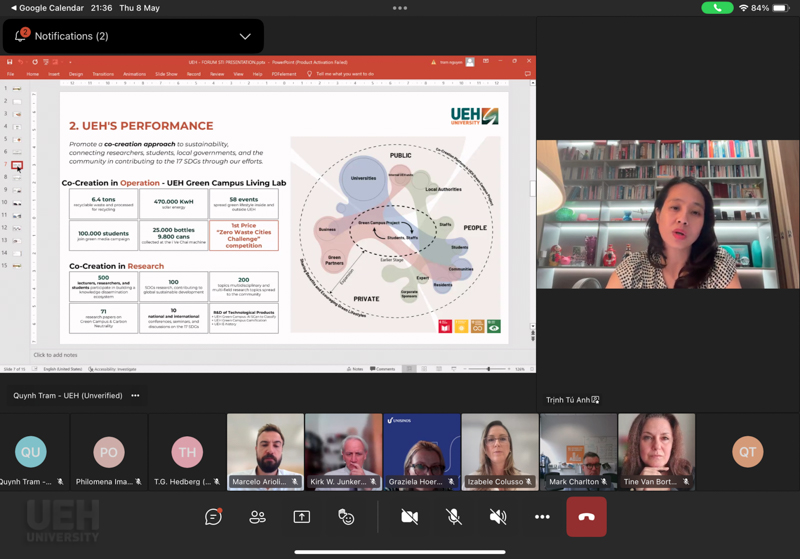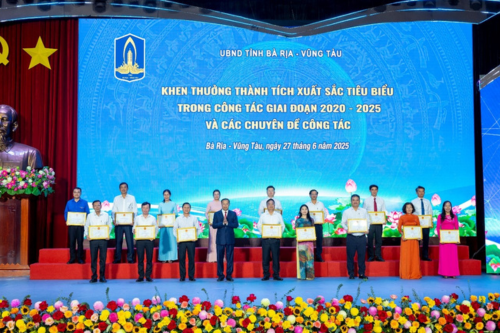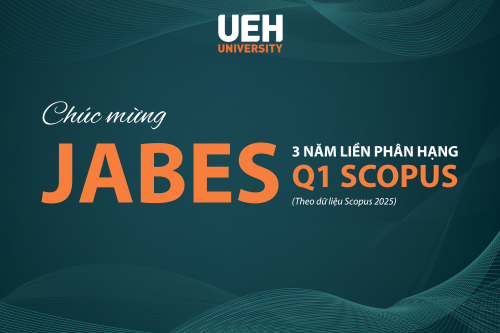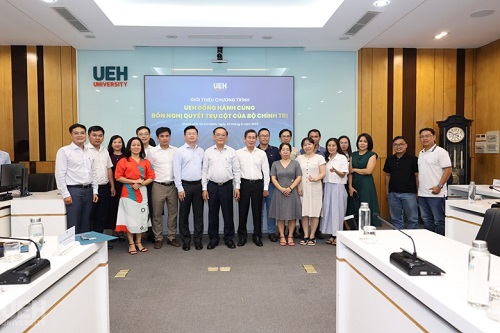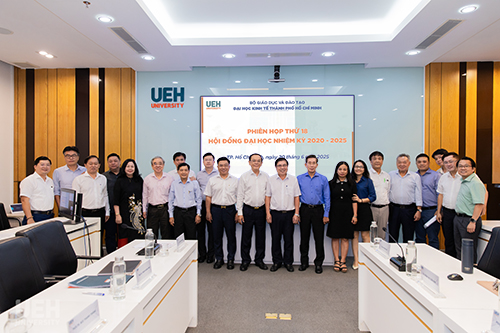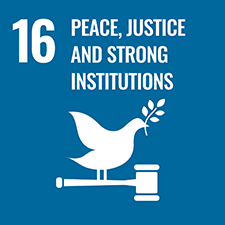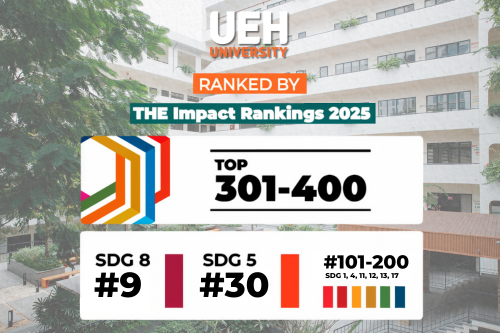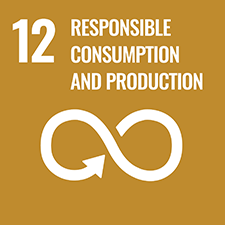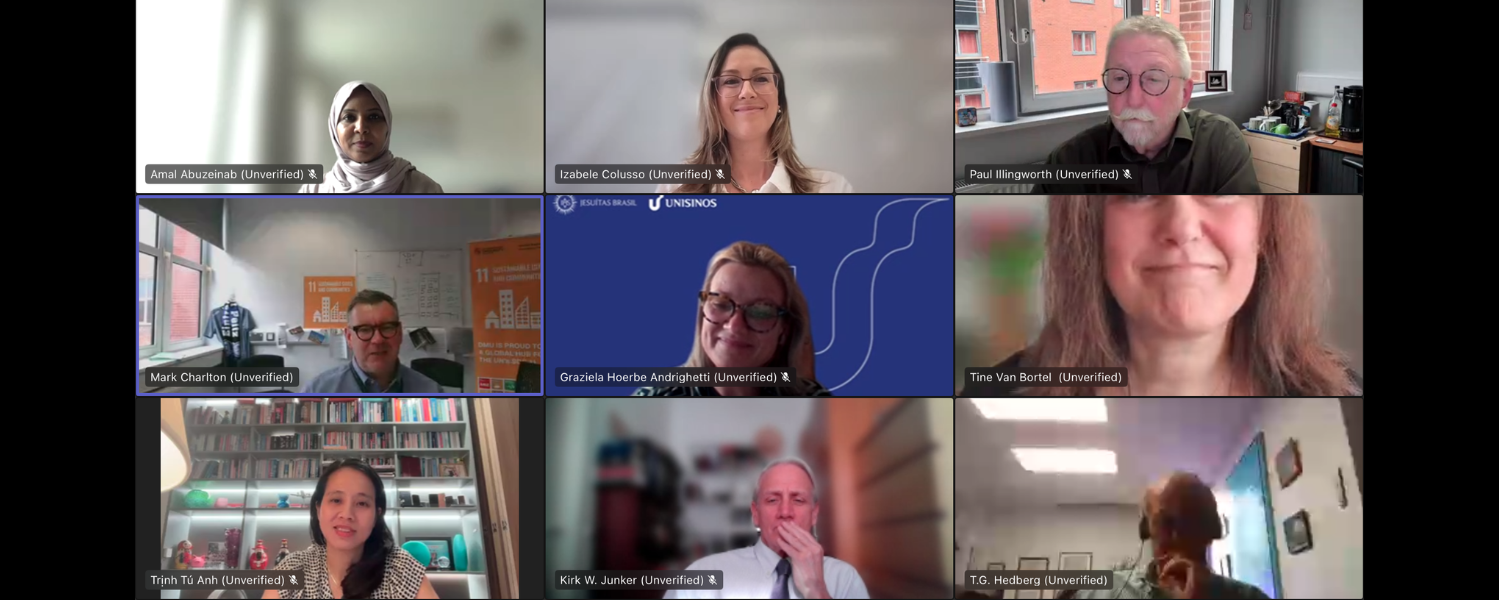
UEH Representatives Share Insights at the 10th STI Forum as Vice-Chair of SDG 11: Sustainable Cities and Communities
19 May, 2025
On May 8, 2025, at the 10th United Nations Multi-stakeholder Forum on Science, Technology and Innovation (STI Forum), representatives from global centers for SDG 11 participated in a panel discussion themed “Strengthening Urban Resilience – Building Safer, Stronger Communities.” This session focused on critical topics including disaster response, climate change adaptation, social inclusion, and sustainable urban development.
The STI Forum, short for the “Multi-stakeholder Forum on Science, Technology and Innovation for the Sustainable Development Goals,” is a global event held annually by the United Nations to discuss the role of science, technology, and innovation in achieving the Sustainable Development Goals (SDGs) of the 2030 Agenda.
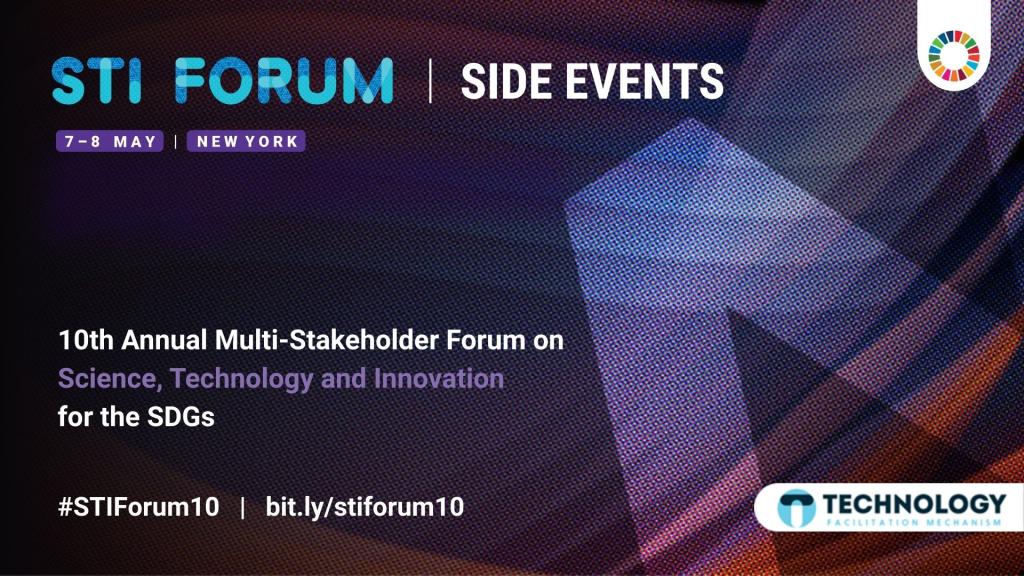
The 10th Multi-stakeholder Forum on Science, Technology and Innovation
Source: UN Website
This marked the first event in which UEH participated as the global Vice-Chair of SDG 11 – “Sustainable Cities and Communities.” The event welcomed representatives from member universities of the SDG 11 Hub: Chairman of De Montfort University (DMU), United Kingdom; Vice-Chair for Teaching and Education: University of Cologne, Germany; Vice-Chair for Research: Vale do Rio dos Sinos University – Unisinos, Brazil; and Vice-Chair for Engagement and Collaboration: University of Economics Ho Chi Minh City (UEH), Vietnam.
Opening the discussion, Dr. Mark Charlton from DMU introduced the objectives of the event series, emphasizing the importance of connecting global academic hubs to advance sustainable urban solutions through science, technology, and education.
Representatives from the University of Cologne (Germany), including Professors Frauke Kraas and Kirk W. Junker, presented their interdisciplinary approach to SDG 11. Their work centers on applying technology and big data to develop sustainable urban planning solutions, social equity, and leveraging urban data for policy recommendations. Notable projects include analyzing urban data for smart city development, implementing community-based learning models for students, and collaborating with local governments to enhance the quality of life in densely populated cities.
From Unisinos University (Brazil), Professors Graziela Hoerbe Andrighetti and Izabele Colusso highlighted their flagship project, “Unisinos Research and Commitment to Outreach: Climate Change, Disaster, Social and Academic Contribution to Regional Reconstruction.” This initiative focuses on supporting peri-urban communities through the development of “community hubs,” where residents and researchers collaboratively design solutions for housing, the environment, and disaster adaptation. Unisinos underscores that sustainable development must be pursued through a bottom-up approach, with active participation from local communities.
From the University of Economics Ho Chi Minh City (UEH), Assoc. Prof. Dr. Trinh Tu Anh, representing the UEH Sustainable University Project Board, presented UEH’s initiatives and projects, with a particular emphasis on co-creation in education: integrating technology, planning, and governance into academic programs, encouraging students to participate in the learning process and generate new solutions; co-creation in research through collaborative Living Lab projects in Ho Chi Minh City involving students, the community, and local agencies; and co-creation in the community, highlighting multi-stakeholder engagement and knowledge sharing in the journey towards sustainable development.
Finally, Dr. Amal Abuzeinab from De Montfort University (DMU), the global lead for the SDG 11 network, concluded the panel by sharing ongoing research projects in Leicester, UK. Key activities include designing inclusive public spaces, developing sustainable transportation systems, and the “Universities as Living Labs” program, which transforms universities into testbeds for urban solutions. Dr. Abuzeinab also stressed the critical role of interdisciplinary education in shaping responsible citizens amid urban transformation.
With the aim of connecting communities, sharing knowledge, and taking action for sustainable development, UEH and all participating representatives agreed that achieving green, equitable, and sustainable cities requires robust collaboration between universities and communities, as well as addressing global challenges such as climate change, rapid urbanization, and social crises.
UEH’s Sustainable Development Strategy
UEH’s sustainable development strategy is implemented comprehensively across five pillars:
+ Training: UEH maintains lifelong learning and a Glocal training foundation through courses and short- and long-term programs for diverse audiences, contributing to SDG 4 – Quality Education. Learners are equipped to make informed, balanced, and holistic decisions. The university also makes sustainable development a mandatory subject across all disciplines, empowering learners to drive positive environmental and social change. In recent years, UEH has launched 13 new interdisciplinary programs aligned with modern trends and workforce needs for the next generation, such as Technology and Innovation, Digital Communication and Multimedia Design, Accounting integrated with international professional certifications, Financial Technology (Fintech), Marketing Technology (Martech), Digital Business, Robotics and Artificial Intelligence (Robot & AI), Logistics and Supply Chain Technology (Logtech), Information Security, Information Technology, Computer Science, ArtTech, and Intelligent Control and Automation. Nearly 100 extracurricular activities, competitions, seminars, and events on sustainability, environmental protection, green technology, green economy, green universities, circular economy, and sustainable urban development have been organized.
+ Research: UEH’s academic community has contributed over 500 research publications from faculty and staff, alongside hundreds of student-led research projects focusing on themes such as green lifestyles and the circular economy, contributing to SDG 7 – Affordable and Clean Energy, SDG 12 – Responsible Consumption and Production, SDG 13 – Climate Action, and SDG 14 – Life Below Water.
+ Governance: Upholding the consistent principle of “Democracy – Transparency – Equity,” every UEH member enjoys equal rights and regular participation in decision-making, policy implementation, and institutional activities. Sustainable practices are integrated into university governance, and a green culture is cultivated as a daily norm, contributing to SDG 12 – Responsible Consumption and Production, SDG 15 – Life on Land, and SDG 16 – Peace, Justice, and Strong Institutions.
+ Operations: Through the UEH Green Campus project, five tons of landfill waste have been reduced by rigorously implementing source separation, thereby extending waste lifecycle and promoting responsible consumption in line with SDGs 12 and 15.
+ Connect the Community: UEH continuously connects with organizations and communities interested in sustainability to share and discuss solutions to environmental challenges, notably through the International Forum on Sustainability (IFS), which makes significant contributions to SDG 17 – Partnerships for the Goals.
To sustain and advance its sustainable university strategy in tandem with internationalization, UEH annually integrates all 17 SDGs into its operations. Criteria from three major sustainability rankings-QS Sustainability, THE Impact, and UI Green Metrics-are consolidated and assigned as annual objectives (OKRs) for each unit.
Learn more about all of UEH’s actions to actualize the 17 Sustainable Development Goals (SDGs) on our official website.
News and photos: UEH Sustainable University Project Board



